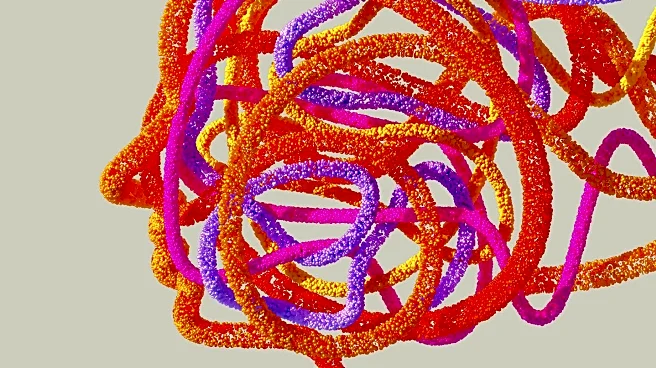What's Happening?
Incyte, a global biopharmaceutical company, has launched an initiative called The Unseen Journey, which uses generative artificial intelligence (AI) to visualize the symptoms of myeloproliferative neoplasms (MPNs), a group of rare, chronic blood cancers. This initiative aims to bring to light the often invisible emotional and physical toll of MPNs by transforming patient experiences into AI-generated visuals. The program includes the MPN VisualAIzer tool, which converts written descriptions of MPN symptoms into vivid, 360-degree imagery, offering patients a creative way to visualize symptoms that are difficult to describe verbally. This tool is particularly beneficial for patients like Marilyn and Dave, who have shared their stories through AI-generated imagery, highlighting the wide-ranging symptoms of MPNs that are not always apparent to others.
Why It's Important?
The use of AI-generated imagery in visualizing MPN symptoms is significant as it provides a new method for patients to communicate their experiences, which are often misunderstood or overlooked. This can lead to better patient-doctor communication and potentially improve diagnosis and treatment plans. MPNs, including polycythemia vera, myelofibrosis, and essential thrombocythemia, can have serious health implications such as blood clots and increased bleeding. By making these symptoms more visible, the initiative may help raise awareness and understanding among healthcare providers and the public, potentially leading to earlier detection and intervention. This approach also underscores the growing role of AI in healthcare, particularly in enhancing patient care and understanding complex medical conditions.
What's Next?
The Unseen Journey initiative and the MPN VisualAIzer tool are expected to continue evolving, potentially incorporating more patient stories and expanding the range of symptoms visualized. As awareness grows, healthcare providers may increasingly use these tools to better understand and treat MPNs. Incyte's approach could inspire similar initiatives for other rare diseases, leveraging AI to improve patient outcomes. Stakeholders, including medical professionals and patient advocacy groups, may engage more actively with these tools, promoting their use in clinical settings and patient education. The initiative may also lead to further research into the application of AI in visualizing symptoms of other chronic conditions.
Beyond the Headlines
The ethical implications of using AI in healthcare are significant, as it raises questions about data privacy and the accuracy of AI-generated interpretations. Ensuring that AI tools are used responsibly and ethically is crucial, particularly when dealing with sensitive health information. Additionally, the cultural impact of visualizing invisible symptoms could shift societal perceptions of chronic illnesses, fostering greater empathy and understanding for those affected. Long-term, this approach may influence how healthcare systems integrate technology to enhance patient care, potentially leading to more personalized and effective treatment strategies.











